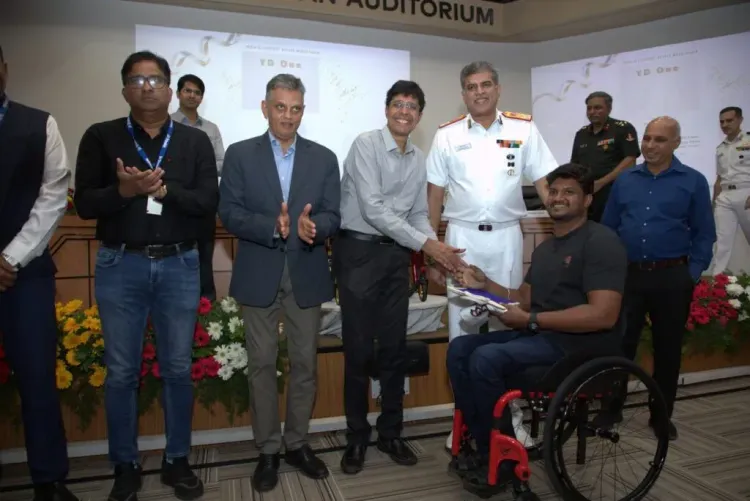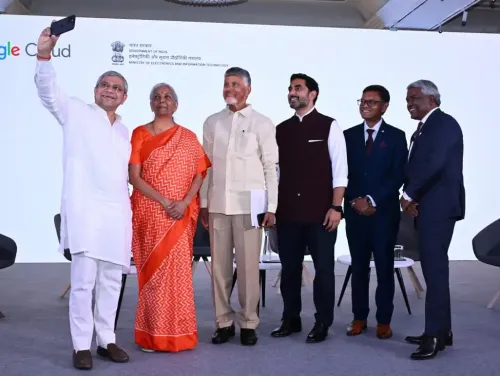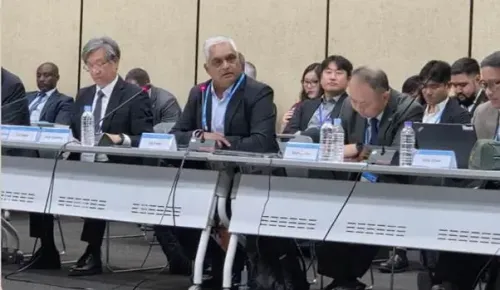Did IIT Madras Just Launch India's Lightest Active Wheelchair at 8.5 Kgs?

Synopsis
Key Takeaways
- YD One is India’s lightest active wheelchair at 8.5 kgs.
- It features a composite design of carbon fiber and aluminum.
- Priced at Rs 75,000, it is significantly cheaper than imports.
- Y D One promotes independence for individuals with disabilities.
- It aims to reach rural areas and support India's startup ecosystem.
New Delhi, July 16 (NationPress) The Indian Institute of Technology (IIT) Madras has unveiled India's lightest active wheelchair – YD One – which weighs merely 8.5 kgs.
YD One is recognized as the nation's first precision-engineered monu-tube rigid-frame wheelchair designed to compete with the best globally.
In contrast to traditional wheelchairs that typically weigh around 17 kgs, the YD One has been certified by ISO and weighs only 8.5 kgs.
“We’ve achieved a remarkable 50 percent weight reduction with YD One,” stated Prof. V. Kamakoti, Director of IIT Madras, during a press briefing.
To accomplish this weight reduction, a collaborative effort among researchers in fields ranging from mechanical to metallurgy led to the creation of a unique composite made of carbon fiber and aluminum. The product has undergone rigorous modeling and stress testing.
“Starting tomorrow, it will be available for purchase at a price of Rs 75,000,” Kamakoti added, mentioning that an equivalent imported wheelchair would cost approximately Rs 2,40,000.
The lightweight design of YD One facilitates swift movement and easy rotation, allowing individuals with disabilities to conveniently lift and store it in cars, autos, or public transport.
Furthermore, YD One will empower individuals with disabilities to engage in the Paralympics, according to the Director.
“I believe YD One will be of great significance, and its affordability may allow it to reach rural areas,” he noted, suggesting that the government might support its outreach.
Highlighting the recent Cabinet approval for funding in research, development, and innovation (RDI), Kamakoti underscored the importance of supporting startups.
Currently, IIT Madras is home to 103 startups, with a goal of launching 100 startups annually.
“By 2032, we aim to have 1,000 startups. I believe we will be the primary beneficiaries of the RDI initiative. As our esteemed Prime Minister envisions, Viksit Bharat by 2047 will transform India into a product nation and startup nation. We must prepare ourselves for this future and ensure we are heading in the right direction,” Kamakoti concluded.









